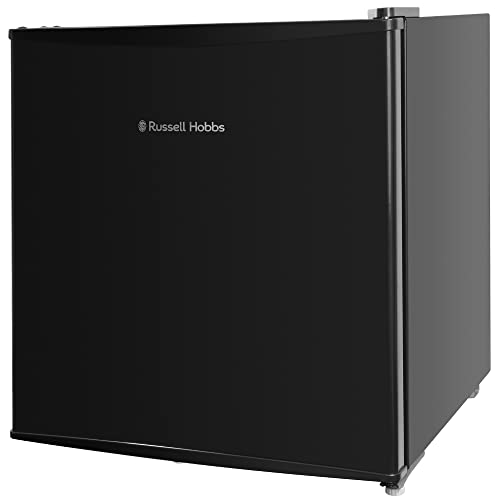Understanding Refrigerators: A Comprehensive Guide
Refrigerators, typically described as fridges, are crucial devices in modern homes and industrial facilities. They play an essential role in maintaining food and beverages, ensuring they remain fresh and safe for intake. Over the years, advancements in technology have actually transformed the modest fridge into an advanced appliance that comes equipped with numerous functions and functionalities. In this short article, we will check out the various types of refrigerators, crucial features to consider when purchasing one, and upkeep pointers to extend its life expectancy.
Types of Refrigerators
When it pertains to fridges, there is a wide variety of options offered in the market. Each type deals with different needs and choices, making it crucial for customers to understand their qualities. Below is a summary of the main types of refrigerators:
| Type | Description | Pros | Cons |
|---|---|---|---|
| Top-Freezer | A standard style with a freezer compartment above the refrigerator section. | Cost-effective, familiar design | Minimal storage area for fresh food |
| Bottom-Freezer | Features a freezer compartment situated at the bottom for simpler access to fresh food. | Ergonomic style, more fresh food space | Freezer might need bending to gain access to |
| Side-by-Side | Split vertically, with the freezer on one side and the refrigerator on the other. | Convenient access to items, ample storage space | Narrow storage bins |
| French Door | Combines a bottom freezer with double doors for the refrigerator section, providing flexibility. | Elegant design, easy access to foods | Greater price point |
| Compact Fridge | Smaller sized units developed for minimal areas such as dormitory or workplaces. | Space-efficient, portable | Restricted storage capability |
| Smart Fridge | Equipped with Wi-Fi connectivity and touch screens, allowing users to handle groceries digitally. | High-tech features, energy-efficient | Pricey and may need updates |
Secret Features to Consider
When investing in a refrigerator, it's necessary to examine particular features to ensure it meets your requirements. Here are key elements to think about:
Size and Capacity
- Ensure the fridge fits your kitchen area.
- Think about the overall capability based upon your home requires.
Energy Efficiency
- Try To Find ENERGY STAR ratings to make sure energy effectiveness, which can save money on electrical power costs.
Cooling Technology
- Examine if the fridge uses traditional cooling, dual cooling, or advanced technologies like inverter compressors for much better performance.
Storage Options
- Evaluate shelving versatilities, crisper drawers, and adjustable compartments for efficient storage and company.
End up and Design
- Select a finish (stainless-steel, matte, and so on) that matches your kitchen area décor. Keep in mind to think about the overall style, whether smooth or standard.
Smart Features
- Think about clever fridges if you want functions like temperature level control via an app, stock tracking, and notices when the door is left open.
Maintenance Tips for Refrigerators
Correct upkeep can substantially extend the life of a refrigerator. Here's a list of essential upkeep practices:
- Regular Cleaning: Keep the interior clean and devoid of spills and expired items. Month-to-month cleaning is recommended.
- Examine Temperature Settings: Ensure the refrigerator is set between 35 ° F and 38 ° F, while the freezer must be at 0 ° F to preserve food security.
- Clean Condenser Coils: Dust and debris can build up on the coils, minimizing effectiveness. Cleaning them every 6 months is a good idea.
- Check Door Seals: Regularly examine the door gaskets for wear and tear. Cheap Fridge For Sale is important for keeping temperature.
- Thawing: In older designs, thaw the freezer routinely to prevent ice accumulation. Fridges Sale included auto-defrost features.
- Keep Vents Unobstructed: Ensure air flow is not blocked by items, which can hamper cooling efficiency.
- Display Food Storage: Properly store foods and prevent straining the fridge, which can limit airflow.
Frequently Asked Questions (FAQs)
How long do refrigerators generally last?
- Most refrigerators last in between 10 to 15 years, depending on the design and upkeep.
What can I do to keep my fridge running efficiently?
- Routine cleaning, inspecting temperature level settings, and preserving correct ventilation can enhance efficiency.
Is a clever fridge worth the financial investment?
- If you typically prepare, entertain, or need innovative features such as remote temperature control and stock tracking, the investment might be worthwhile.
Can my refrigerator cause high electricity costs?
- Ineffective models, poor maintenance, or leaving the door open can result in increased electricity consumption.
What's the difference between a top-freezer and a bottom-freezer design?
- A top-freezer fridge has a freezer section above the fridge, while a bottom-freezer model has a freezer drawer at the bottom for ease of access to fresh food.
Refrigerators are indispensable in contemporary cooking areas, serving not only as storage for perishables but likewise showing advancements in innovation and benefit. With the myriad options offered, comprehending the types, features, and maintenance can empower customers to make informed choices. Proper care can ensure that a fridge remains effective and functional for years, eventually enhancing the total food storage experience in the home. Whether choosing Refrigerators On Sale or a compact fridge for a studio apartment, consumers today are geared up with the knowledge to select the best device for their requirements.

